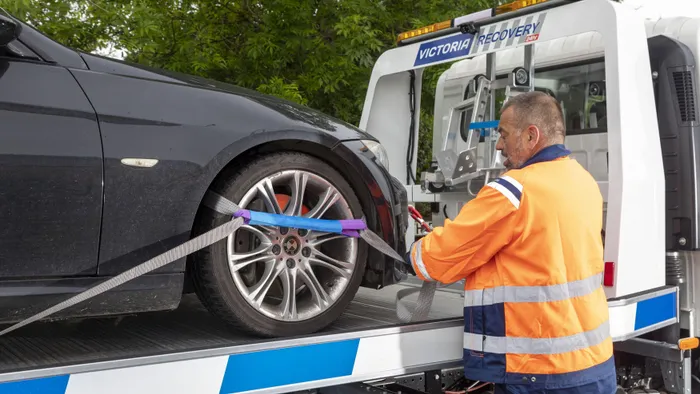Want your car to last longer? Here are 10 nasty habits you should avoid

The correct driving habits and maintenance procedures can prevent your vehicle from failing prematurely.
Image: Newspress
We all hate unexpected costs. From vet bills to family healthcare costs and even the odd burst geyser. But few things can sting you in the purse or wallet as hard as unexpected vehicle repairs.
With finances being on the tight side for numerous South African households, many are feeling the temptation to keep their vehicles for longer, but is it really worth holding on after the service plan and warranty have expired?
That question has a different answer for every scenario, but if you are planning to hang on to your ride, there are numerous steps you can take to ensure it lasts as long as possible without major defects.
How to make your car last longer
To shed some light on the matter, IOL spoke to the national director of the Motor Industry Workshop Association (MIWA), Pieter Niemand.
According to Niemand, perfecting your driving style and following the correct maintenance procedures can go a long way to extending the lifespan of your vehicle.
“Good driving habits are the cheapest form of preventative maintenance,” adds Niemand.
“Motorists can add years to the life of their vehicles simply by adopting better driving habits and following correct maintenance schedules.”
Mistakes that shorten the lifespan of your vehicle
Driving aggressively from a cold start
Revving hard or accelerating quickly while the engine is still cold is one of the worst things that motorists do, Niemand warns.
This is because your engine’s oil doesn’t lubricate as effectively when it is cold, potentially leading to excessive wear on the piston rings, timing chain stretch and premature turbo damage.
MIWA advises at least 30 to 60 seconds of gentle driving before pushing the engine hard.
Harsh driving style
Even once your engine has warmed up, a poor driving style can also have a detrimental effect on the longevity of your vehicle.
Avoid harsh acceleration and sudden braking; rather, maintain steady speeds and anticipate traffic in order to reduce the stress on components, Niemand advises.
Riding the clutch and poor gearbox habits
Many gearbox failures are caused by the driver, not the gearbox, Niemand says.
Common mistakes include keeping your foot resting on the clutch, using the clutch to hold the car on an incline and changing gears too aggressively.
These habits can cause overheating, friction wear or even total clutch or gearbox failure.
Running the fuel tank too low
What many drivers don’t realise is that fuel cools and lubricates the fuel pump.
Allowing your fuel level to drop below a quarter can draw dirt and sediment into the system, damage injectors and even overheat the pump. This can lead to costly repairs, Niemand warns.
Overloading the vehicle
Constantly carrying heavy loads puts unnecessary stress on the suspension, brakes, tyres and gearbox.
“Your vehicle was engineered for a specific payload. Consistently exceeding it shortens its lifespan dramatically,” Niemand says.
Vehicle maintenance mistakes you should avoid
Skipping oil changes or using the wrong oil
Your choice of oil has a direct impact on engine and gearbox longevity, and using the correct oil grade (of a good quality) is one of the simplest ways to extend the life of your engine.
“Your engine oil is the lifeblood of your car,” says Niemand.
Using the wrong oil grade or neglecting to change your oil at the prescribed intervals will cause premature engine wear, sludge build-up, overheating and even turbocharger failure.
Ignoring warning lights and dashboard messages
One of the most common and costly mistakes is disregarding engine lights and cluster warnings.
These alerts exist to prevent minor wear from turning into major failures. Continuing to drive with flashing engine lights can cause catastrophic damage to engines or gearboxes. It can also result in fuel system damage and unsafe braking conditions.
Neglecting filters and belts
Air filters, fuel filters and timing belts are not optional extras, Niemand says.
Neglecting these items can lead to reduced engine efficiency, poor performance and even engine failure if a timing belt snaps.
That’s why belts and filters should always be replaced at the prescribed intervals, and inferior quality filters should be avoided.
Neglecting cooling system maintenance
One of the leading causes of engine failure is overheating, and this is directly related to cooling system maintenance.
Among the most common mistakes owners make is using plain water instead of proper coolant, and not replacing coolant at recommended intervals.
MIWA says a proper antifreeze/coolant mix is essential, particularly in hot South African climates.
Incorrect tyre pressure and wheel neglect
Low tyre pressures put strain on the suspension and steering systems, while incorrect wheel alignment damages tyres as well as wheel bearings and CV joints.
Motorists should check their tyre pressures at least once a month and align wheels twice a year.
Vehicle maintenance in general should not be neglected, and vehicle owners should meticulously stick to their vehicle’s maintenance intervals without fail. Choosing cheaper workshops or DIY fixes can also backfire, as unregulated workshops often lack the correct tools or expertise.
MIWA says its accredited workshops follow strict standards when it comes to compliance, health and safety, as well as diagnostic and training standards.
IOL Motoring
Get your news on the go. Download the latest IOL App for Android and IOS now
Related Topics: